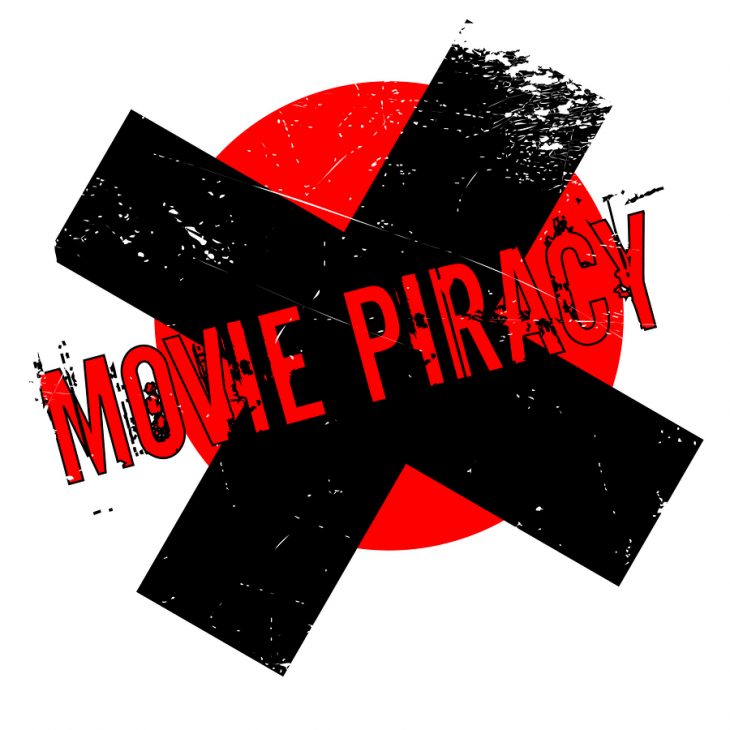
TORONTO – Rogers Communications is not allowed to demand a fee from copyright owners who ask the giant ISP to help track down individual suspected movie and TV pirates, the Federal Court of Appeal ruled earlier this month – a decision which will directly impact all Canadian Internet service providers.
While the Copyright Act and the Copyright Modernization Act protects copyright owners from having their wares digitally taken and shared without compensation, everyone knows this is a common occurrence and so movie studios and others try to work with ISPs to limit losses. Procedures are in place to combat the problem – primarily the notice and notice regime where ISPs, alerted to potential copyright infringers, send notifications to households whose IP addresses have been flagged as potential pirates.
The ISPs notify them there has been potential illegal activity from their home – such as downloading movies that haven’t been paid for – and tell them to cease and desist. That bit of a scare does cause some to cease their illegal downloading (or at least have a chat with the teenagers in the house and/or lock down their router passwords).
However, the case before the Federal Court between Rogers Communications and Voltage Pictures is a little deeper. The film studio has identified an IP address where it says its intellectual property (movies) has been stolen repeatedly and wants to launch a class action lawsuit against this “John Doe” who is also a Rogers customer.
Under the law, Rogers must identify the household in question, but it takes a bit of work to do that, the company told the court, and so it should be able to charge fee to the copyright owners to seek, verify and deliver the information, at a rate of $100/hour.
A lower court sided with Rogers on the issue but on appeal by Voltage, Justice David Stratas wrote in his May 9th decision there should be no fee charged for such a search.
“The overall aim is to ensure that in the age of the internet, the balance between legitimate access to works and a just reward for creators is maintained. The internet must not become a collection of safe houses from which pirates, with impunity, can pilfer the products of others’ dedication, creativity and industry,” writes Stratas. “Allow that, and the incentive to create works would decline or the price for proper users to access works would increase, or both. Parliament’s objectives would crumble. All the laudable aims of the Copyright Act—protecting creators’ and makers’ rights, fostering the fair dissemination of ideas and legitimate access to those ideas, promoting learning, advancing culture, encouraging innovation, competitiveness and investment, and enhancing the economy, wealth and employment—would be nullified,” he wrote.
That means, among other things, “the legislative regime must be interpreted to allow copyright owners to protect and vindicate their rights as quickly, easily and efficiently as possible while ensuring fair treatment of all.”
Rogers claims that without some sort of fee (which does go to cover costs as there is manual work to be done to track an IP address to a certain household at a certain time and make sure it is correct, because IP addresses are dynamic) it and other ISPs will be swamped with potentially frivolous requests from owners of copyrighted works seeking to sue the ISPs’ customers. Rogers already sends out thousands of notice and notice messages every year.
Justice Stratas was not swayed and saw the issue from a 180 degree angle. “Internet service providers could potentially charge a fee so large that copyright owners would be dissuaded from obtaining the information they need to protect and vindicate their rights. Parliament’s aims of protecting the rights of copyright owners, fostering the wide dissemination of ideas and legitimate access to those ideas, promoting learning, advancing culture, encouraging innovation, competitiveness and investment, and enhancing the economy, wealth and employment would be thwarted. But the pirates’ safe houses would thrive,” he writes.
“Allowing an internet service provider at the point of disclosure to charge a fee for these costs would be an end run around the legislative decision that these activities should not be remunerated at this time.”
It would appear from the ruling that Rogers has a couple of options open to it – either petition the federal government to change the law so that it explicitly says it can charge a fee for this deeper search – or take ask for leave to appeal this decision to the Supreme Court of Canada.
When contacted by Cartt.ca, the company declined to say what it is going to do. “We are currently reviewing the decision,” said a spokeswoman in an email. “We expect the industry as a whole will see a spike in the number of subscriber look-up requests made by rightsholders.”
Rogers has until early August to decide if it wants to appeal.


